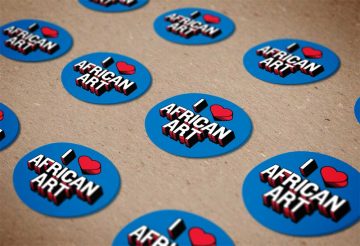The Smithsonian has received $13.5 million in grants from Lilly Endowment Inc. to support programs and exhibitions that explore the role of religion in public life. Four Smithsonian museums and centers received grants for public programming in history, culture and the arts:
The National Museum of American History will use an $8 million grant to establish a Center for the Public Understanding of Religion in American History. Plans call for the creation of a 3,500-square-foot gallery and programming space, focusing on the influence of religion in American history and culture. The center’s physical space is expected to open in 2023. The funding furthers the museum’s work in researching, collecting, exhibiting and presenting programs on the nation’s diverse religious traditions.
The Freer Gallery of Art and Arthur M. Sackler Gallery—the Smithsonian’s National Museum of Asian Art—will use a $2.5 million grant to support “The Arts of Devotion,” a portfolio of projects, including an online educational resource, community engagement efforts and four exhibitions that will highlight the intersection of Asian arts and religious diversity and change: “Mind Over Matter: Zen Monk-Painters in Medieval Japan,” “Beyond Rumi: Sufi Art and Practice,” “Krishna Revealed: Journey to the Sacred Mountain” and “Krishna’s Path of Grace.”
The Center for Folklife and Cultural Heritage will use a $1.5 million grant to support the “Creative Encounters: Living Religions in America” program. Presented by the Smithsonian Folklife Festival from 2021 to 2023, this program will explore diverse religious communities and experiences in contemporary America. In summer 2022, the festival will gather Buddhists, Christians, Hindus, Jews, Muslims, Sikhs, followers of Native American and African-inspired religions and devotees of humanism and other ethical traditions on the National Mall and online.
The National Museum of African Art will use a $1.5 million grant to support “Global Religions of Africa,” a major programmatic and community engagement initiative designed to foster greater understanding and appreciation of Africa’s diverse religions. Activities will focus on educational programs and outreach connected to forthcoming museum exhibitions. These in-person and online offerings will engage multinational audiences and demonstrate the global relevance of Africa’s religious practices.
“One of the nation’s foundational principles embedded in our Constitution is religious freedom for all faiths,” said Lonnie Bunch, Secretary of the Smithsonian. “Lilly Endowment’s generous grants will enhance the Smithsonian’s scholarly freedom to explore religion’s indelible impact on cultures around the world.”
Lilly Endowment has previously supported Smithsonian programs on religion and culture, including the establishment of a Center for the Study of African American Religion at the National Museum of African American History and Culture. Lilly Endowment also provided funding in 2015 for a curator of American religious history at the National Museum of American History.
About the Smithsonian
Since its founding in 1846, the Smithsonian Institution has been committed to inspiring generations through knowledge and discovery. It is the world’s largest museum, education and research complex, consisting of 19 museums, the National Zoological Park, education centers, research facilities, cultural centers and libraries. There are more than 6,300 Smithsonian employees and 6,900 volunteers. There were more than 22 million visits to the Smithsonian in 2019. The total number of objects, works of art and specimens at the Smithsonian is estimated at nearly 155 million, of which nearly 146 million are scientific specimens at the National Museum of Natural History.
About Lilly Endowment Inc.
Lilly Endowment Inc. is an Indianapolis-based, private philanthropic foundation created in 1937 by J.K. Lilly Sr. and sons J.K. Jr. and Eli through gifts of stock in their pharmaceutical business, Eli Lilly and Company. While those gifts remain the financial bedrock of the Endowment, the Endowment is a separate entity from the company, with a distinct governing board, staff and location. In keeping with the founders’ wishes, the Endowment supports the causes of community development, education and religion. The Endowment funds significant programs throughout the United States, especially in the field of religion. However, it maintains a special commitment to its founders’ hometown, Indianapolis, and home state, Indiana.
